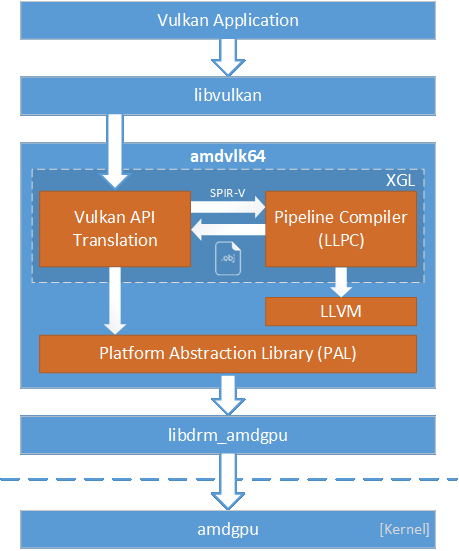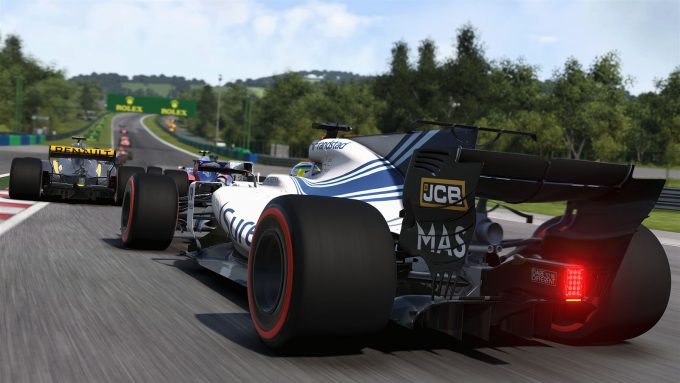- Qualcomm Launches Snapdragon 4 Gen 2 Mobile Platform
- AMD Launches Ryzen PRO 7000 Series Mobile & Desktop Platform
- Intel Launches Sleek Single-Slot Arc Pro A60 Workstation Graphics Card
- NVIDIA Announces Latest Ada Lovelace Additions: GeForce RTX 4060 Ti & RTX 4060
- Maxon Redshift With AMD Radeon GPU Rendering Support Now Available
AMD Releases Its Open Sourced Vulkan API Graphics Driver For Linux
A little over a week ago, we wrote about AMD’s plans to deliver an open source Vulkan driver for Linux. Today, that driver has risen to the surface as AMDVLK, allowing any distro maintainer the ability to grab and compile the code for inclusion. If you’re a regular end-user wanting to test this driver out, don’t expect an easy time. Ultimately, most people will eventually grab this driver through official distro repos, unless they’re really hands-on.
Along with the driver, AMD has given us a ton of information relating to pretty much every aspect of it. The driver is built on top of AMD’s Platform Abstraction Library (PAL), something that will allow new GPUs to be supported quicker, and improve interoperability between the GPU and AMD’s development tools.

AMD’s Platform Abstraction Library block diagram
Currently, the 1.0 release of this Vulkan driver includes support for “more than” 30 extensions, Radeon GPUProfiler support, built-in debug tools, and mid-command buffer preemption and SR-IOV virtualization support. Future plans include a hardware performance counter, LLPC optimizations, and further optimizations to improve performance on CPU-limited systems.
AMD’s open-source Vulkan driver is built with code from three different repositories; LLVM, XGL, and PAL. AMD welcomes anyone to contribute to the project, but asks that overall submissions be made pretty modest, and that it matches the existing code style. If you want to make grander code contributions, you’ll need to raise the issue and have it evaluated. No one wants anyone else to waste time.
Currently, the driver officially supports both Ubuntu 16.04 and Red Hat 7.4. The driver could be compiled for other OSes with some effort, but for now, this is where the support list ends.
I probably won’t compile the driver myself, since the steps look a little too intensive for this point in time (I’m knee-deep in other Linux testing), but I plan to give it a go whenever I can jump in with a bit more ease. The thought of playing a legitimate graphically-intensive game on a completely open-source driver is pretty exciting to me.





